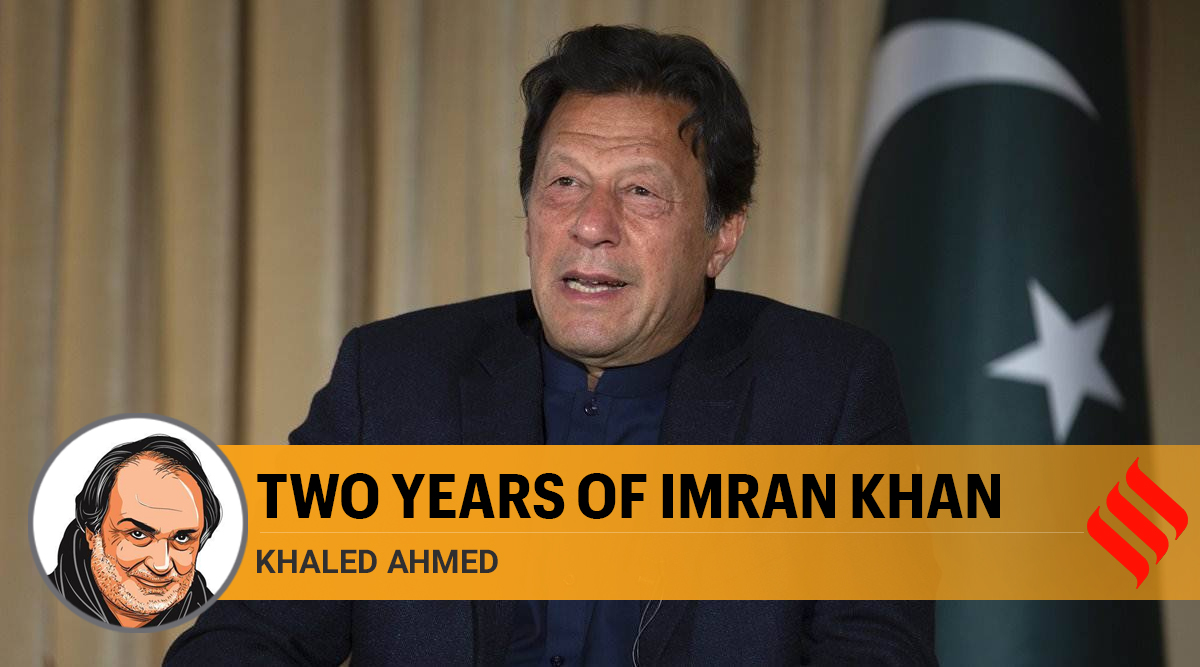 Imran Khan’s past anti-US and pro-Taliban rhetoric doesn’t make him too acceptable to the world outside.
Imran Khan’s past anti-US and pro-Taliban rhetoric doesn’t make him too acceptable to the world outside.After two years in office, on August 18, Prime Minister Imran Khan’s charisma took a beating on the streets of Pakistan. People have reacted to inflationary prices and job loss and responded negatively in polls conducted by Pakistan’s TV channels. Yet, politically, he finds himself in no danger, joining President Recep Erdogan of Turkey and Prime Minister Narendra Modi of India, in ruling with decimated oppositions. He began with “revolutionary” ideas about coping with indebtedness but was soon persuaded to behave “normally” by going to the International Monetary Fund (IMF) and adopting “subservient” austerity to cope with $95 billion in foreign debt and $135.5 billion in domestic debt.
He thought he could first of all “normalise” with India to avoid the negative fallout of Pakistan’s past “jihad” (read terrorism) but soon learned that India under PM Modi was in no mood to oblige. Instead, Khan had to endure — and still endures — tension on the border with India. Unfortunate bilateral incidents have not given him the breathing space in which to focus on the economy.
His hounding of the already prostrated opposition parties, Muslim League Nawaz (PMLN) and Pakistan People’s Party (PPP), has produced a politics of vituperation not before seen in Pakistan. At the intellectual level, it is difficult for an impartial observer to ignore how he treats the opposition through the National Accountability Bureau (NAB) that has ruined the country’s image as a state under the law. The NAB is being used — although it is an “independent” institution — to hunt down journalists and newspaper-owners critical of Khan’s governance. Add to this the verbal violence used by him and his party men to describe all opposition and you have Pakistan made unstable by politics.
Imran Khan’s past anti-US and pro-Taliban rhetoric doesn’t make him too acceptable to the world outside. His reference to Osama bin Laden as a “martyr” of Islam disappoints many who admire Khan for his honesty in financial matters. But his mishandling of foreign policy has made his supporters regret that they were led astray by his rhetoric. He has thoroughly mishandled the Kashmir issue by listening to “Muslim” leaders like Erdogan of Turkey and Mahathir Mohamad of Malaysia to challenge Pakistan’s Arab friends on not “uniting” against India on Kashmir.
Khan is a cricket-playing “Islamic hero” who continues to be befuddled by the rhetoric of the utopian State of Madina where the common man was sovereign and the caliph was his servant. He doesn’t like “modern” issues like women’s rights and blames the country’s “English medium” schools for such “alien” concepts. He has thought up the concept of the “uniform curriculum” for all schools and colleges in the country. This actually threatens the people with “uniform” brainwash in favour of his conservative religious worldview. The common understanding of this policy of “uniform” curriculum is that he will not be able to “reform” the madrasa. Instead, he might push the private sector English-medium schools closer to the radical worldview of the madrasa.
The Taliban he once favoured because they were anti-US are hiding in Afghanistan after committing violence in Pakistan in pursuit of their more radical sharia. The latest news is that their various factions have united and plan to coerce Pakistan to adopt the caliphate they advocate. Pakistan is fencing the Pak-Afghan border even as the Taliban — egged on, they allege, by India — unite and cross into Pakistan in the Tribal Areas and Balochistan to kill Pakistani troops.
Imran Khan must worry about Pakistan’s poor-quality manpower and consequently its poor-quality industrial base. Chinese projects under China Pakistan Economic Corridor face this problem while Saudi Arabia is persuaded to ignore Pakistan and invest in India to diversify its oil-based economy. Saudi Aramco is aiming for a $15 billion investment in India’s Reliance company whose owner, Mukesh Ambani, the world’s fourth-richest person, said recently that Aramco was set to buy a 20 per cent stake in his company’s refining and petrochemicals business, valued at $75 billion.
This article first appeared in the print edition under the title “Two years of Imran Khan.” The writer is consulting editor, Newsweek Pakistan.